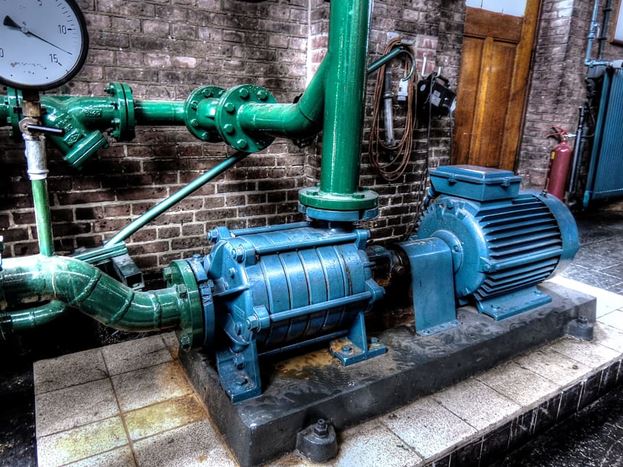Pump noise is the sound that a pump makes when it comes into contact with water and air. This noise can be very loud, distracting, and bothersome. If you are having trouble sleeping due to the noise of your room’s pump system, or if your bedroom is in close proximity to a noisy restaurant or business, it may be wise for you to take action. If you are looking for information about how to get rid of a noisy room and quiet your pump, this article will help you.
Table of Contents
What is Pump Noise?
Pump noise is a type of noise that can be created when water or other liquids are pumped. Pumping can occur in a variety of settings, including factories, hospitals, and homes. Pump noise can have a negative impact on the environment and the workers who are affected by it.
If you’re concerned about pump noise, there are a few things you can do to reduce its effects. First, identify the sources of pump noise. Once you know where the noise is coming from, you can try to find ways to reduce it. You may also want to consider installing pump noise control devices. These devices help reduce the amount of noise produced by pumps. They can be installed at the pump itself or in a process pipeline.
Pump noise control devices should work by increasing the flow, which helps to reduce noise levels. You may also want to consider adding a sound absorber such as a foam pad or a liquid barrier. If you’re concerned about an existing problem that is making noise, one thing you can do is add an airfoil around the pump, allowing for more absorption of noise waves. This airfoil could be made from stainless steel or other materials that help reduce noise pollution levels.
Problems and Noisy Pump Causes
1. Cavitation or Water Hammering
A rattling sound inside a pump may be caused by damaging cavitation, resulting from imploding internal gaseous bubbles due to restricted flow, improper pressure, or other issues. Likewise, water hammering, a single implosion of a large gaseous bubble or air pocket might sound like a loud bang. Take steps to eliminate cavitation.
2. Worn Seals and Leaking Inlet Plumbing
If a pump’s seals are going bad, cracked, or dried out, they can form leaks. Air leaks in inlet plumbing can create very loud noises. Similarly to cavitation, it can ruin a pump if not corrected. Check all the connections regularly to verify a proper seal.
3. Poor Inlet Plumbing Configurations
If you have a big plastic housing that has a built-in tank, or hoses that run loosely along the floor of the plastic housing and you place a pump on top of it, it will likely result in excessive noise. Likewise, any hose that’s not routed in a way that keeps it away from the walls and housing could cause issues.
4. Worn Cam Bearing
If a pump is nearing the end of its life, the plunger slot and cam bearing that’s attached to the end of the motor can wear out. Proper maintenance can help avoid this issue.
5. Contaminated Grease or Oil
Particulates in the lubricant could scratch and damage a pump system, resulting in noise. A lack of preventative maintenance or a dirty environment can cause issues and even lead to a loss of lubricating grease. Water contamination could cause connecting rods to open up. The pump will knock like a car engine, especially with the change of speed/load and the starting
How does Pump Noise affect the water quality?
Pump noise is a common complaint from water users. It can cause problems with the water quality, both in the short and long term. In the short term, pump noise can make it difficult to hear when trouble arises. This can lead to mistakes and dangerous situations. In the long term, pump noise can damage the equipment and increase the risk of corrosion. There are several ways to reduce pump noise, and understanding why it matters is key to taking action.
For more interesting Blogs, Please Visit google pixelbook
The Benefits of Pump Noise Control
Pump noise is a common issue in water treatment facilities and can be very disruptive to employees and customers. Pump noise control can greatly reduce the amount of noise pollution present in a water treatment plant, allowing workers and customers to live more comfortably and safely. Here are some of the benefits of pump noise control:
- Reduced Noise Pollution Levels: Pump noise is one of the most common sources of noise pollution in water treatment plants. By reducing the amount of pump noise, pump noise control can help reduce the level of noise pollution present in the facility. This can improve worker safety and quality of life for customers.
- Improved Employee Comfort and Safety: Pump noise is often extremely loud and can be very uncomfortable for employees. By controlling pump noise, employers can improve employee safety by limiting exposure to excessive sound levels. Additionally, by reducing the amount of pump noise, employers may be able to reduce employee absenteeism and turnover rates.
- Improved Customer Comfort and Safety: Pump noise often creates a hostile working environment for customers. By reducing the amount of pump noise, businesses can improve customer comfort by providing a quieter environment. This can lead to increased customer loyalty and patronage.
Can you reduce noise in different ways?
Pump noise can be a big problem in manufacturing and processing plants. It can cause fatigue, hearing loss, and machine failures. There are many ways to reduce pump noise, and you should choose the method that is best suited for industrial soundproofing.
One way to reduce pump noise is to use fans to distribute the flow of air or water. This technique is called blade-air-conditioning or bladeless turbine-powered fan (BT). The fans use less energy and produce less noise than traditional pumps.
Another way to reduce pump noise is to use impellers. These devices use blades or paddles to move the water or air. They are less noisy than pumps and can operate at lower speeds. You can also use baffles or screens to limit the sound that pumps produce. This technique is called acoustic separation or sound isolation. It can reduce the sound level by as much as 60%.In some cases, you may need to install new pumps or retrofit old ones with quieter parts. This is called noise control engineering or Noise Control Design (NCD). NCD can involve using materials such as titanium or stainless steel. It can also involve modifying the design of the pump, its bearings,











